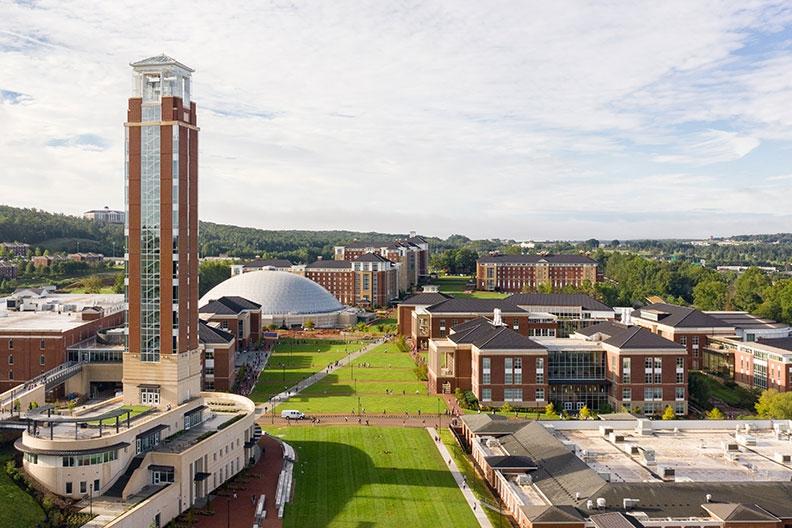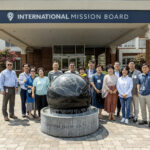
[SLIDESHOW=40997,40998,40999,41001,41002]THAILAND (BP) — They walked a couple of blocks to escape the crowds and loud music, gathered in a quaint coffee shop while local musicians practiced below and took turns telling about conversations with friends during the past hour of outreach.
The five college students retold conversations with excitement because they’d met with friends, yet their words were also marked by heartache at the weightiness of their friends’ struggles: low self-esteem, loneliness, family problems, unhappiness at work and financial issues.
Although trained in cross-cultural missions to unreached people groups, this International Mission Board Nehemiah Team acknowledged these were hard issues to address. Since 2004 IMB has sent out nearly 1,400 students ages 18-29 on Nehemiah Teams that provide summer missions opportunities with potential for eternal impact.
And these students from Texas and Tennessee went to perhaps the most spiritually dark place in an Asian city of 8 million-plus known for human trafficking, child prostitution and sex tourism. For the students, it was an opportunity to befriend a group of people with whom few are sharing the Gospel.
That group is Bangkok’s “ladyboys,” the common way of referring to those who self-identify as transgendered men in Southeast Asia, especially in Thailand. About 10,000 “ladyboys” in Thailand’s capital make a living in the sex industry. Some work in bars where the workers are only ladyboys, and that’s where Nehemiah Team members Zayahary Ortiz and Natalie Marking looked for opportunities to build friendships and share the Gospel.
As soon as they walked up, Ortiz spotted Melanie,* an individual she’d met a few times before, sitting on a stool outside the bar in a black and white bikini, quite focused on applying makeup. Like many others Melanie is consumed with wanting to be beautiful, unashamedly staring often in mirrors lining the bar walls, making sure nothing is out of place.
“Melanie has worked in bars for 10 years, 11 months at this one. She only gets two days off a month,” explained Ortiz, a pre-med major at the University of Texas at Austin.
Melanie’s schedule of working nights and sleeping during the day, with little time off, is typical. The lure of financial security brings some into the bars. Others choose it because, although they live in a country more accepting than most, finding other employment isn’t always easy.
Regardless of how or why Melanie ended up there, Ortiz wanted to show her that she cared. That’s really the goal of every Nehemiah Team, no matter where they serve in the world — to reach the unreached and hard to reach with Jesus’ love.
For this Bangkok team that meant going into uncomfortable places and intentionally getting to know individuals who are uncertain of their sexual identity.
“We have to spend time with them,” Ortiz said. “They have to know we are here to care for them like no one has.”
Ortiz wanted to talk with Melanie, so she waited inside while Melanie got ready. She was early, so the lights were still on and others were also making finishing touches to hair and makeup. Two long rows of benches with purple cushions face each other across a skinny rectangle dance stage. Ortiz sat so close she could almost reach out and touch the stage.
After a little while house lights dimmed, green disco lights swirled and skinny black high heels emerged on the dance floor. The music was loud enough that Ortiz strained to hear Melanie sitting next to her as she talked about missing family eight hours away and trying to save vacation time to visit.
Ortiz’s smile, bubbly personality and head-turning laughter were bright spots in an otherwise dark place of men desperate to be accepted as women.
Melanie, 31, has lived a long time as a “ladyboy.” Some boys show feminine tendencies as children and are encouraged to live in this lifestyle while others, even if not showing feminine tendencies, may be raised as women because of cultural, economic or spiritual reasons. They change their hair and clothing, and some even pay for expensive, painful surgeries to make certain physical attributes more like that of a woman.
Sitting near Ortiz, Marking talked with Traci,* whom she met the week before. Traci talked about her dislike for working in the bar and her struggle with having divorced parents. Marking could relate, as her parents divorced when she was 10.
The University of Tennessee Health Science Center student discovered she and Traci share the same taste in music. Commonalities like music and movies, and even struggles like divorce, helped Marking look beyond lifestyle to see Traci as someone to whom she could relate.
“You can see their personalities,” Marking said. “You realize how much life they have.”
Some nights the Nehemiah students went to bars where staff from the non-profit Dton Naam, whom they served alongside this summer, already had friendships. Although a number of organizations in Bangkok help women trapped in prostitution, Dton Naam is the only one working with men in the ladyboy lifestyle.
Other nights, like this particular night, the collegiate missionaries went where — in just a few weeks — they’d established their own friendships.
Friends in a few weeks? With ladyboys in bars? The students were skeptical at first, too.
But it happened.
“You get comfortable because you’ve built a relationship,” Ortiz said casually, as if there was nothing unusual about their ministry setting. “You just forget about where you are.”
But can you look beyond bikinis and high heels and see the heart of someone desperate for love from their Heavenly Father?
It happened for Lee Webber. The Kilgore College student, who uses words like ‘fixin’ in his Texas twang, had no idea what to expect from a summer far, far away from his southern roots.
“How is a kid from East Texas going to make a difference?” Webber wondered.
Webber’s willingness to listen made a difference for Patrick,* who works in a gay bar but makes little money. Webber teared up talking about his friend who is pushing 40 and a little “old” to be working the bar scene.
“It’s amazing I made friends in such a short time. I can’t explain it,” Webber said. “God did a miracle in our hearts.”
He wasn’t the only one who saw miracles happen. During a prayer time that week the students wrote on slips of paper names of friends they’d met during the summer.
They kept coming, name after name of friends who needed prayer: someone who doesn’t eat a lot because he doesn’t feel pretty, someone else who wants to open a coffee shop but feels pressure to work in the bars to make money and support parents and younger siblings.
With names in hand the students sat on the floor and cried out to God for their eternal salvation and release from a lifestyle of bondage. They prayed for more people willing to go to uncomfortable places and reach the hard to reach — people they now call their friends.
*Names changed.





















